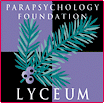 |
 |
| THE BIOGRAPHICAL DICTIONARY OF PARAPSYCHOLOGY FREDERIC WILLIAM HENRY MYERS Philospher, poet, classical scholar, founder-member (1882), Society for Psychical Research, London; SPR secretary, 1888-99, president 1900. B. February 6, 1843, Keswick, Cumberland, England; d. January 17, 1901, Rome. Educ. Trinity College, Cambridge (fellow). M. 1880, Eveleen Tennant. Myers' discussions with his tutor at Cambridge, Henry Sidgwick (q.v.), with whom he formed a lifelong friendship, led to the formation of the SPR by Myers, Sidgwick, Willim Barrett, Edmund Gurney (qq.v.) and other. From its founding until his death, Myers devoted the greater part of his time and energy to the futherance of the Society's aims. His first outstanding work in psychical research was the production, in collaboration with Gurney and Frank Podmore (q.v.), of Phantasms of the Living (1886), which deals, as the authors state, with "all classes of cases where there is reason to suppose that the mind of one human being has affected the mind of another without speech uttered, or work written or sign made - has affected it, that is to say, by other means than through the recognized channels of sense." The book ranks as one of the great classics of the literatur of psychical research, its brilliant theorhetical discussion alone being sufficient to give it lasting importance. It deals exhaustively with the standards necessary in psychical research particulary in the assessment of spontaneous phenomena, and points out the defects to which such evidence is peculiarly susceptible. The book also discusses the nature and origin of hallucinations and the various psychological states that seem to be conducive to supernormal phenomena. These analyses and discussions are based partly on the experimental results and partly on reports of spontaneous cases, many of the latter being collected by the authors especially for this book. Myers was a member of the committee which investigated the American medium Mrs. Lonore Piper (q.v.) when she first visited England, and which reporte that while not in agreement as to the origin of her trance statements, its members were unanimously agreed that the information she gave was acquired in some supernormal manner. Myers has been described as the principal theorist among early psychical researchers and one of the best publicist the SPR has had. He originated the terms "telepathy," "subliminal consciousness" and many others which have become part of the standard terminology of the subject. In his monumental work Human Personality and Its Survival of Bodily Death (1903), Myers attempted to coordinate the results of his experimental findings, observations, reading and theorizing. The book, now universally recognized as the greatest standard work of psychical research, was unfinished at the time of his death and was prepared for publication at his request by Richard Hodgson adn Alice Johnson (qq.v). Myers held a firm belief in survival and constantly sought and hoped to find in psychical research evidential support for this belief. He considered he had found such support, particulary through the mediumship of Mrs. Piper. He left a "posthumous message" in a sealed envelope, the contents of which, if correctly described by a medium would, he hoped, provide evidence for survival. The results of this attemp were, it is generally agreed, inconclusive. Publications in addition to those already mentioned are St. Paul (1867), Essays: Modern and Classical (1885); Science and a Future Life (1893); Fragments of Prose and Poetry (1904). He also made numberous contributions to the SPR Proceedings. Taken from Helene Pleasants (1964) Biographical Dictionary of Parapsychology with Directory and Glossary 1946-1996 NY: Garrett Publications |
 |

|
 www. parapsychology. org |
||